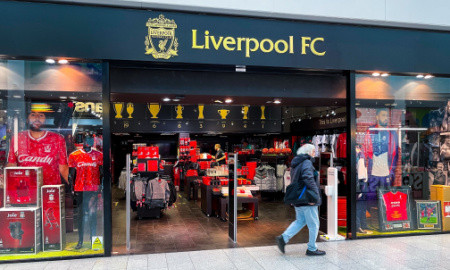Sign up for our free daily newsletter
YOUR PRIVACY - PLEASE READ CAREFULLY DATA PROTECTION STATEMENT
Below we explain how we will communicate with you. We set out how we use your data in our Privacy Policy.
Global City Media, and its associated brands will use the lawful basis of legitimate interests to use
the
contact details you have supplied to contact you regarding our publications, events, training,
reader
research, and other relevant information. We will always give you the option to opt out of our
marketing.
By clicking submit, you confirm that you understand and accept the Terms & Conditions and Privacy Policy
Drinks giant Bacardi has won an appeal in the US reviving a long-running dispute between it and the Cuban government over the trademark HAVANA CLUB.
The US Court of Appeals for the Fourth Circuit on 13 June reversed a district court judgment saying that US trademark law does not preclude Bacardi from suing the US Patent and Trademark Office (USPTO) under the Administrative Procedure Act (APA) for allowing trademark registration renewal despite the statutory deadline being missed.
Bacardi sued under the APA act, alleging that the USPTO Director acted “outside her statutory authority, contrary to law, and arbitrarily and capriciously when she permitted the Cuban government-owned Cubaexport, to pay the renewal fee in 2016 for HAVANA CLUB, 10 years after the statutory deadline”. The office granted renewal of its registration which in Bacardi’s view had “already expired as matter of law”.
Cubaexport was initially prevented from renewing the trademark at the correct time in 2006 because of a trade embargo between the US and the Cuban government.
Bacardi argued that failure to comply with the statutory renewal deadlines “is not a minor technical defect which can be waived” by the USPTO.
The district court had believed the Lanham Act that governs US trademark law precluded judicial review under the APA and so had dismissed Bacardi’s lawsuit for lack of subject matter jurisdiction.
However, the appeals court reversed the district court decision, having found nothing in the Lanham Act that expressly precludes judicial review of “PTO registration renewal decisions or fairly implies congressional intent to do so, we conclude that the APA’s mechanism for judicial review remains available”.
The court reversed and remanded proceedings so Bacardi’s court challenge can continue.
A statement released by Bacardi said it was pleased with the 4th Circuit’s opinion that its case can proceed at the district court level to prove that "Cuba’s ill-gotten Havana Club trademark expired in 2006 and should have been stricken from the trademark registry at that time.”
David H Bernstein, a partner at Debevoise & Plimpton, which represents Cubaexport, said that the decision "does not address the merits of Cubaexport’s renewal of its US trademark registration for Havana Club".
He added that Cubaexport properly renewed in 2016 its trademark registration pursuant to a specific licence from the US Office of Foreign Assets Control. "We are confident that the renewal was valid and that the district court will agree when it reaches the merits of this dispute."
Underlying this appeal is a long-running trademark ownership dispute. The original owner of the HAVANA Club trademark in the US was rum producer José Arechabala, who used to export rum to the US. In 1960, the communist Cuban government seized and expropriated Arechabala’s assets without compensation.
By 1974 Arechabala’s original trademark had expired, after which a company owned by the Cuban government, and doing business as Cubaexport, registered the HAVANA CLUB trademark in the US for itself.
Years later, Arechabala sold its interest in the mark to Bacardi, which filed its own application to register the HAVANA CLUB mark and petitioned the USPTO to cancel Cubaexport’s registration. The USPTO denied Bacardi’s application because of Cubaexport’s preexisting registration and denied Bacardi’s cancellation petition. Bacardi then filed a civil action challenging the denial of cancellation. That lawsuit, filed in 2004, remains pending.
Email your news and story ideas to: [email protected]










